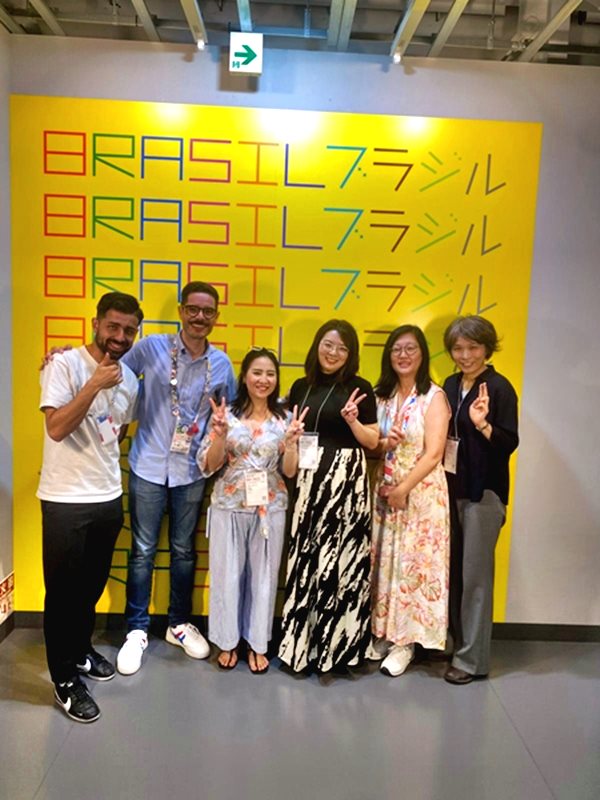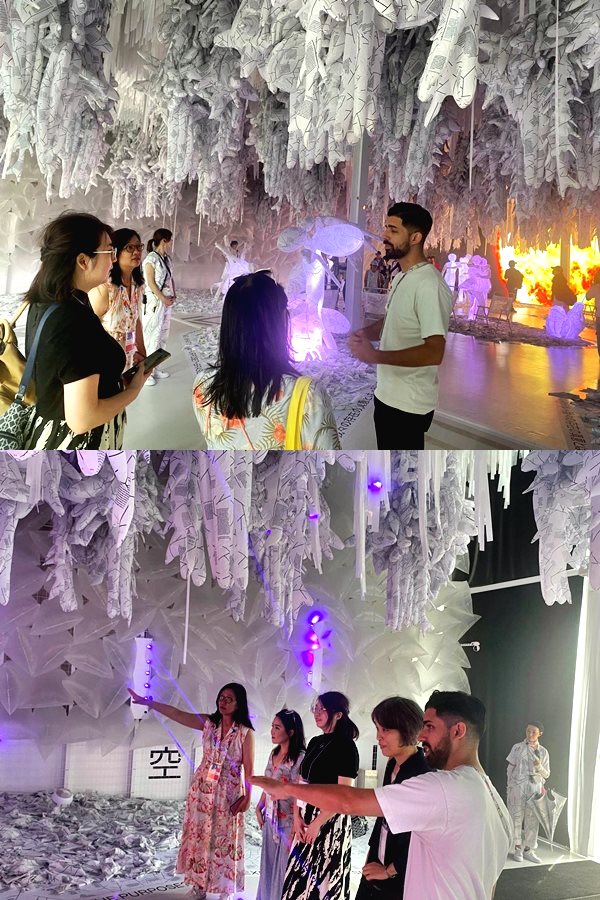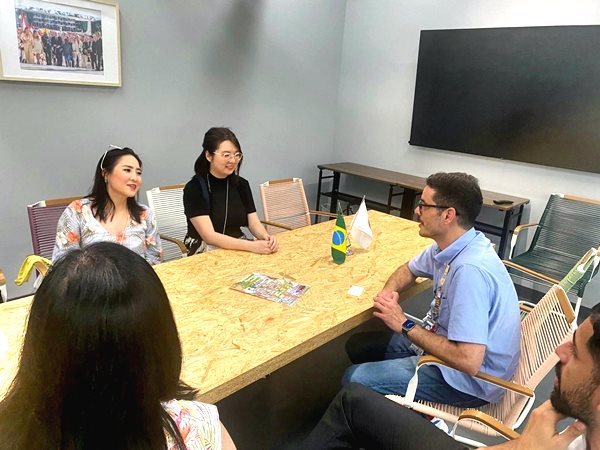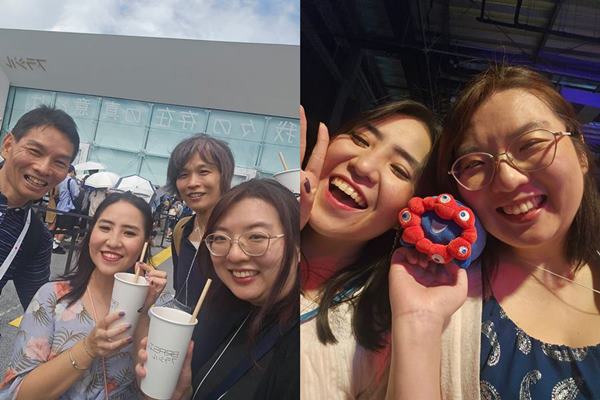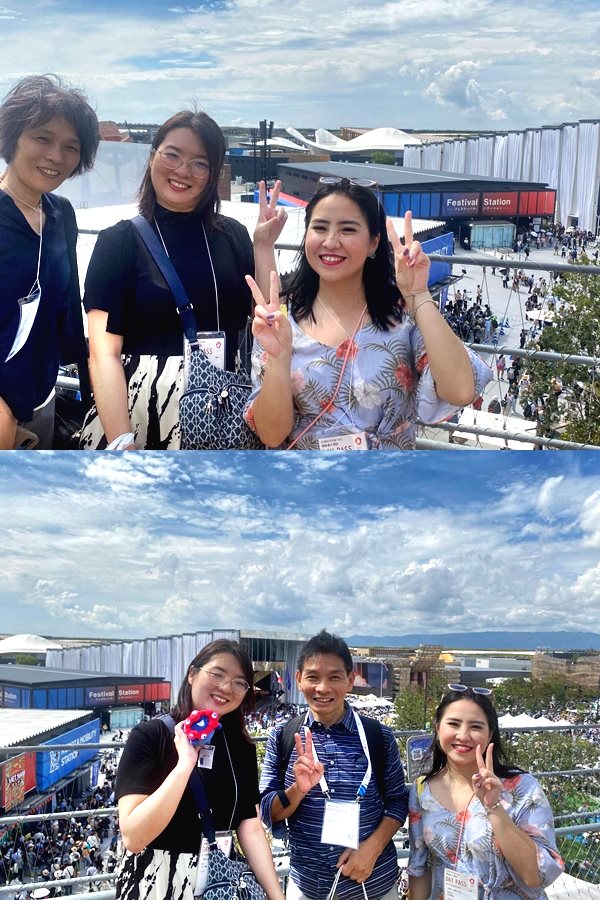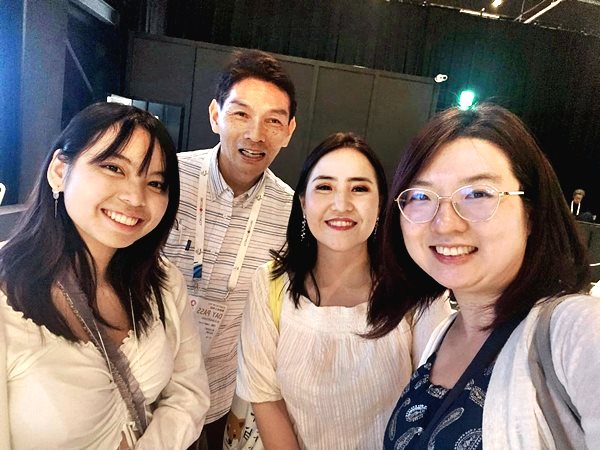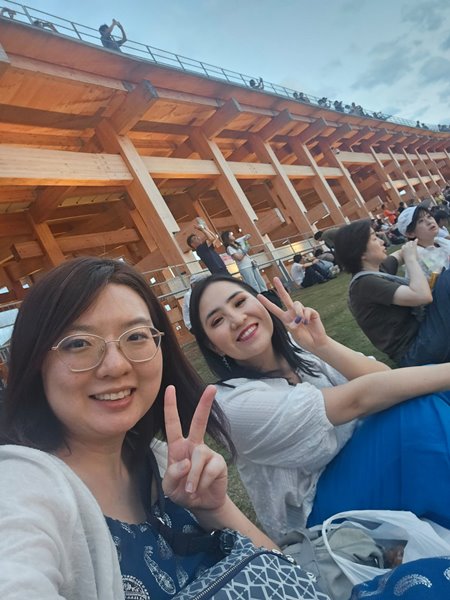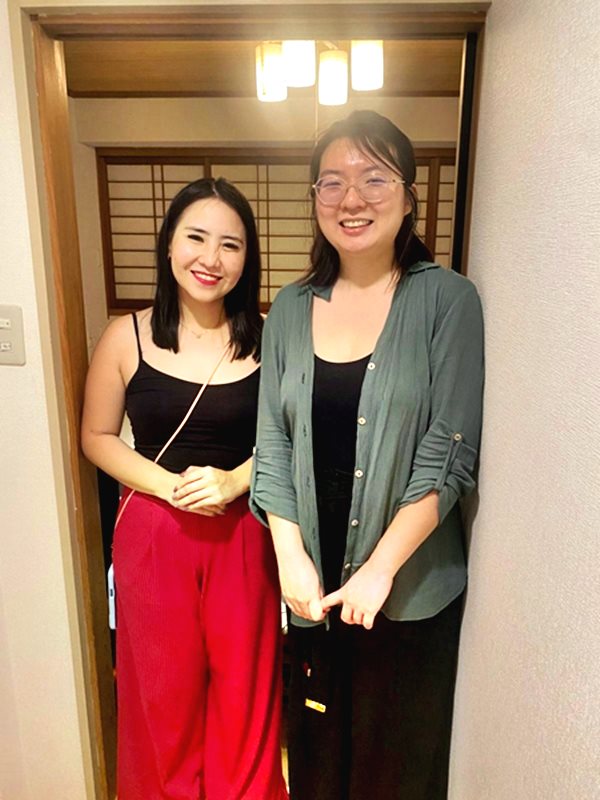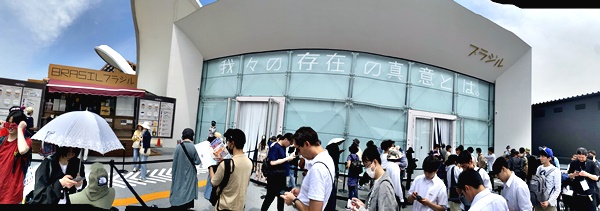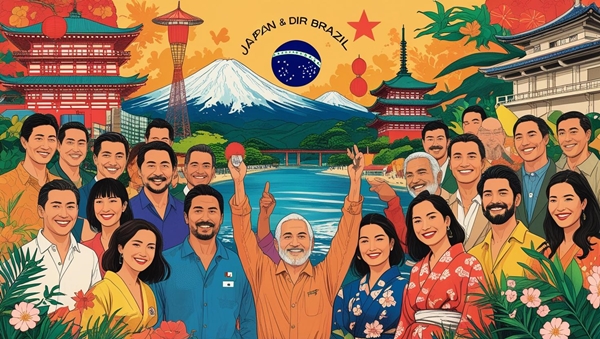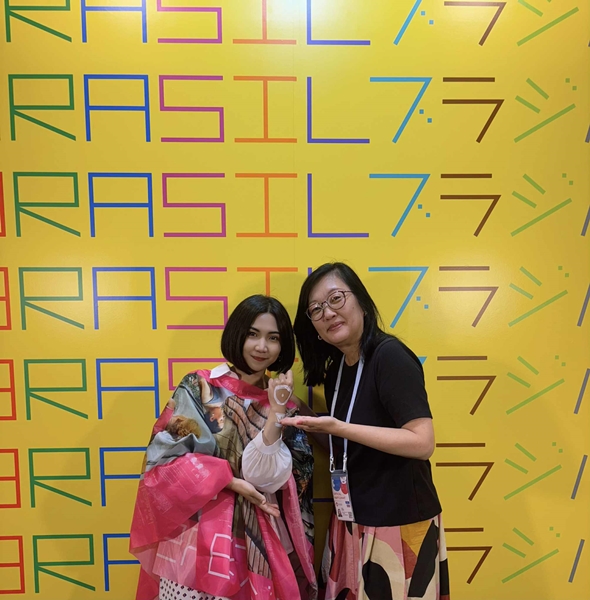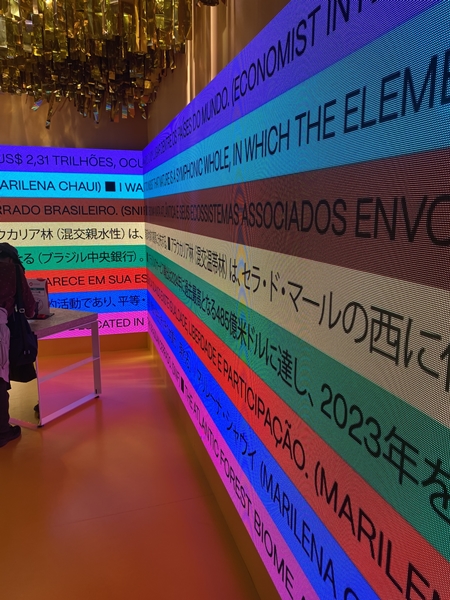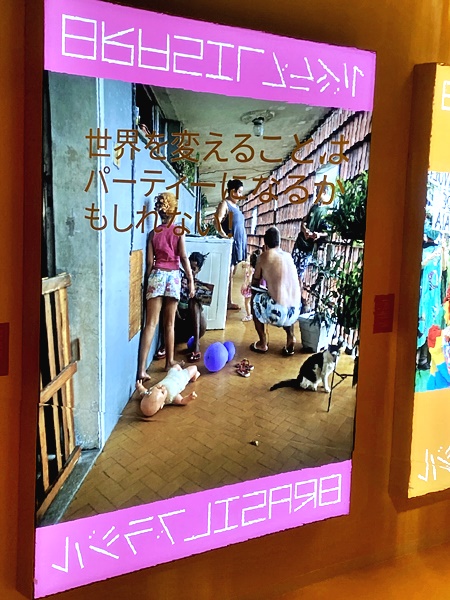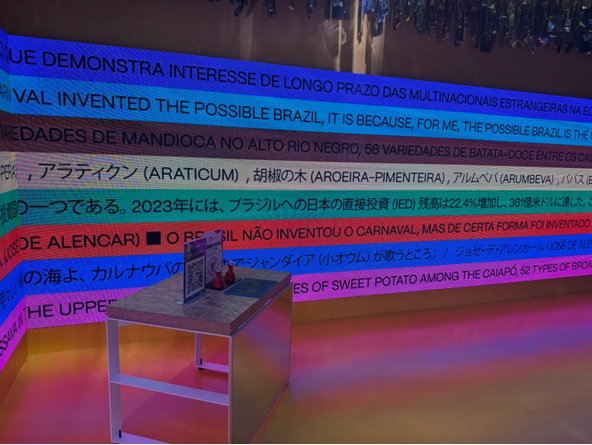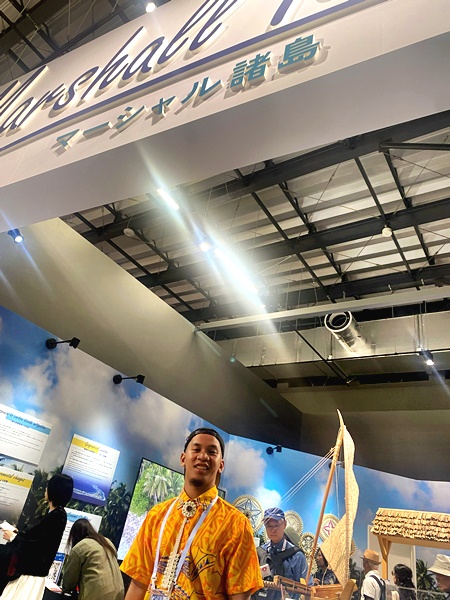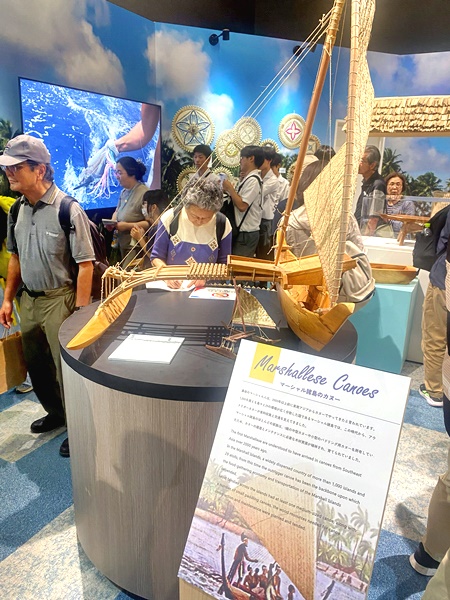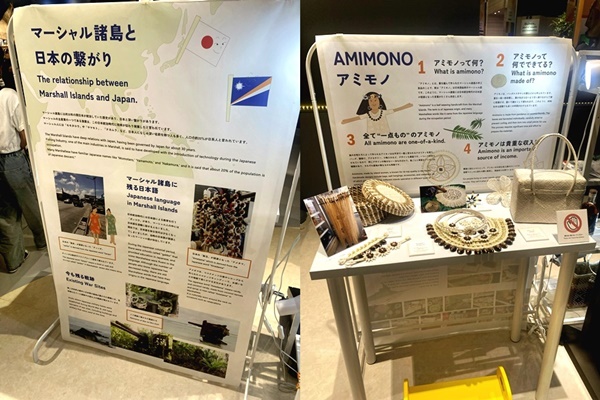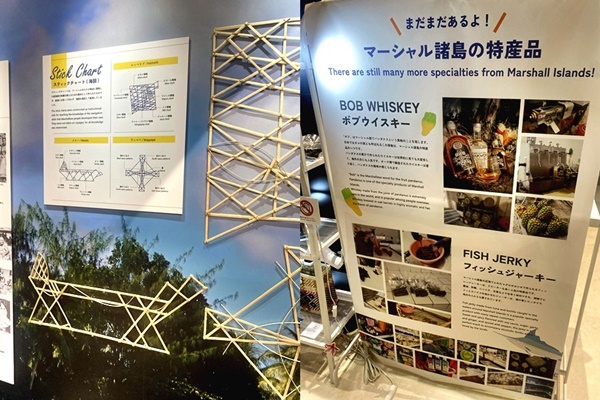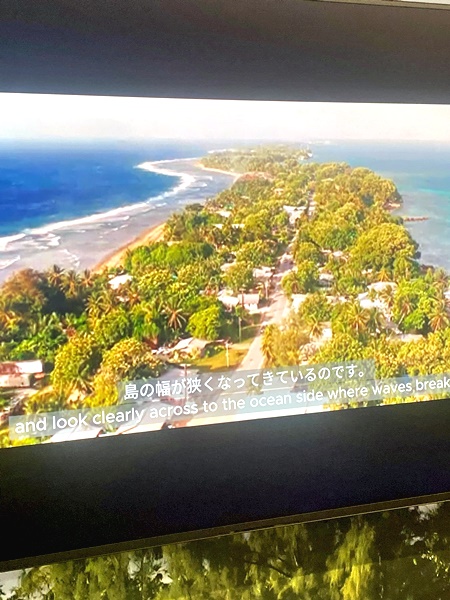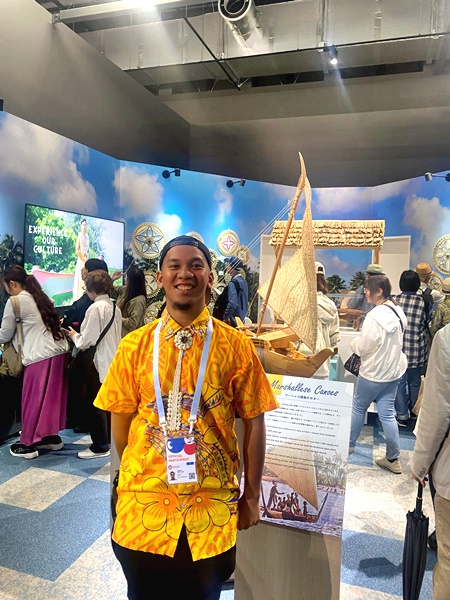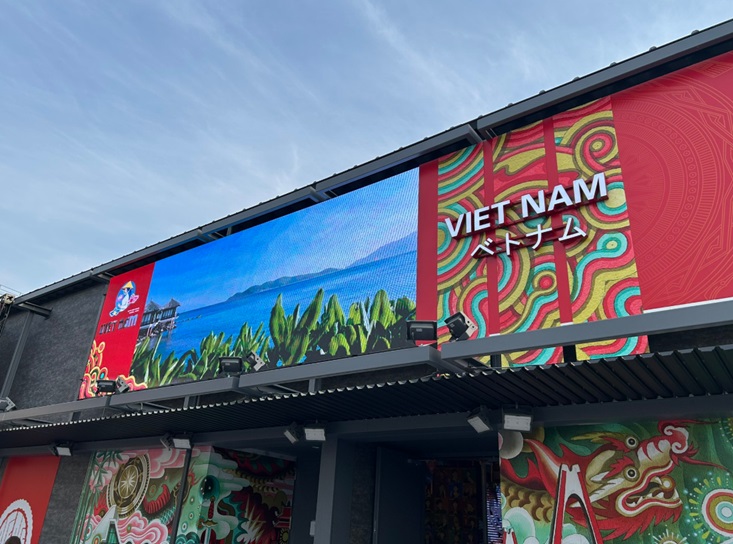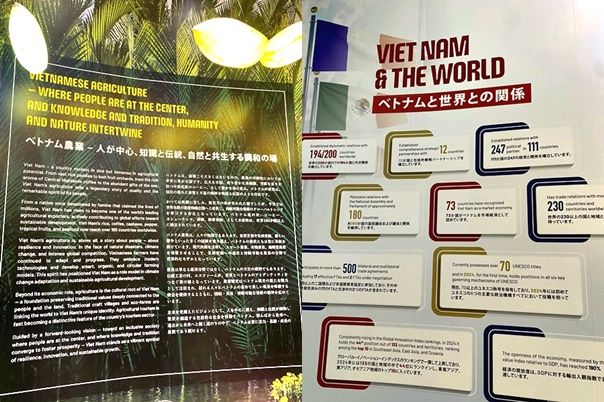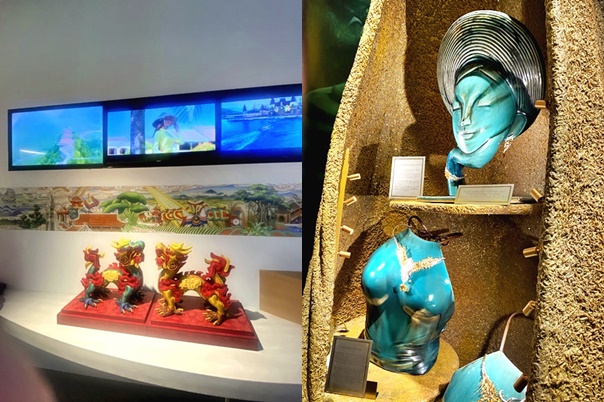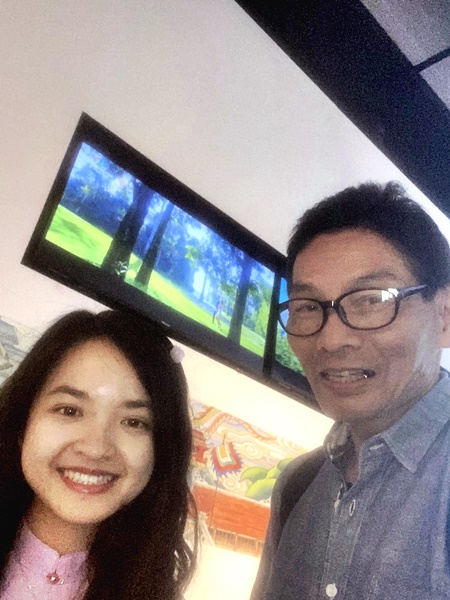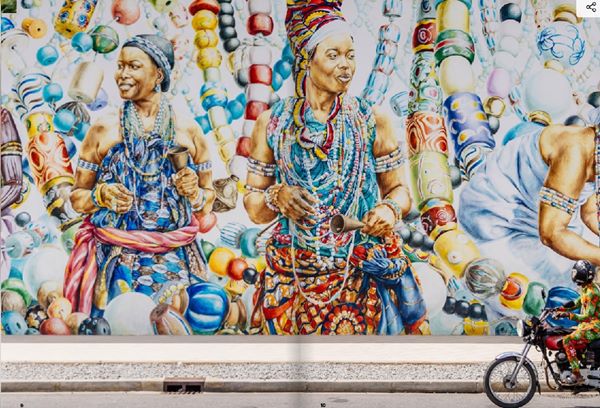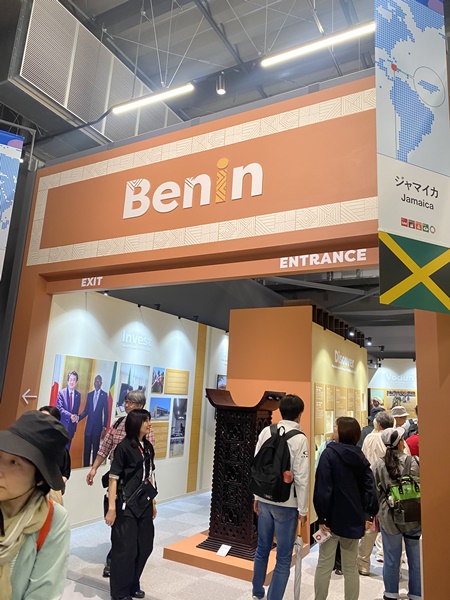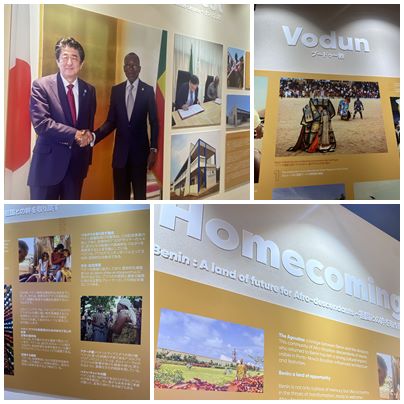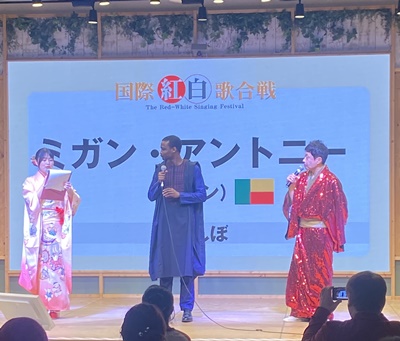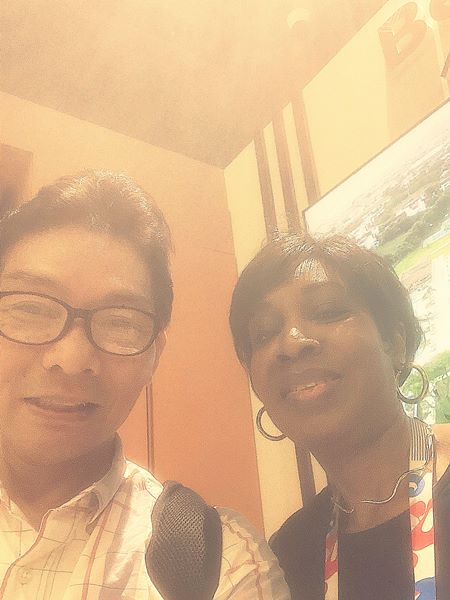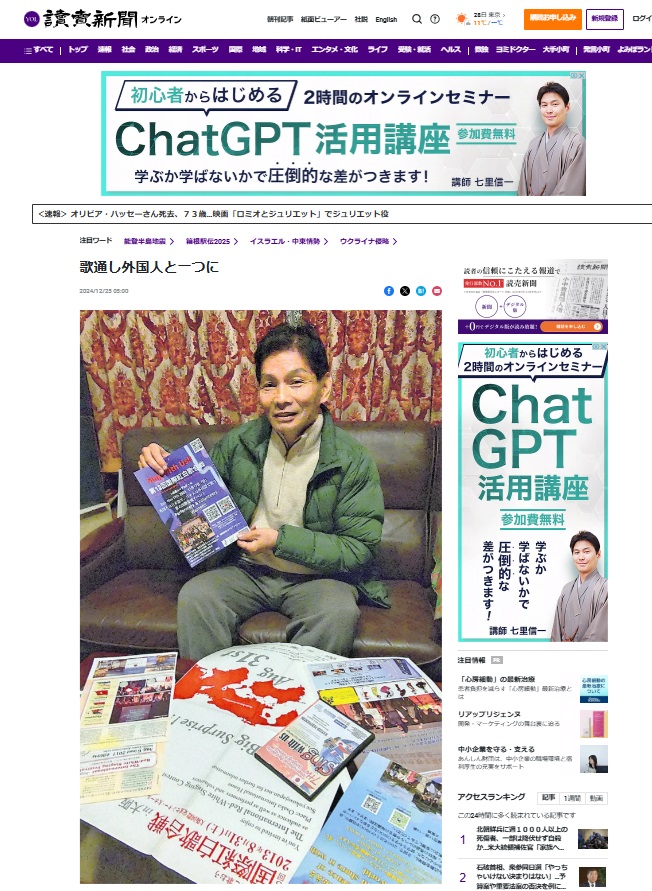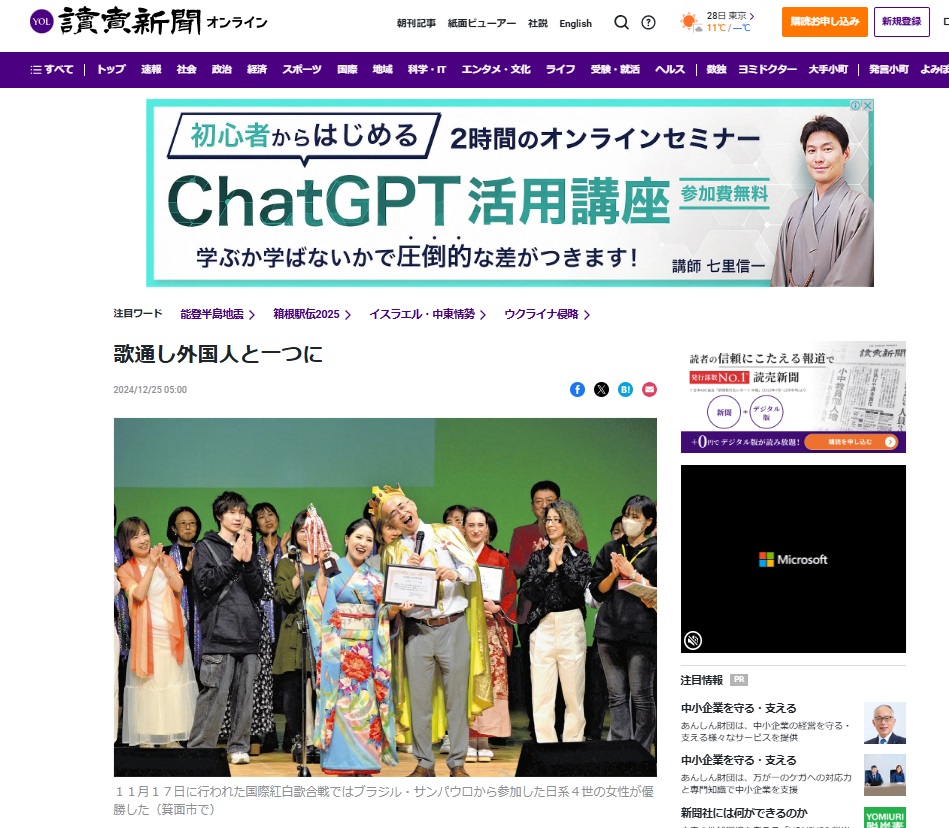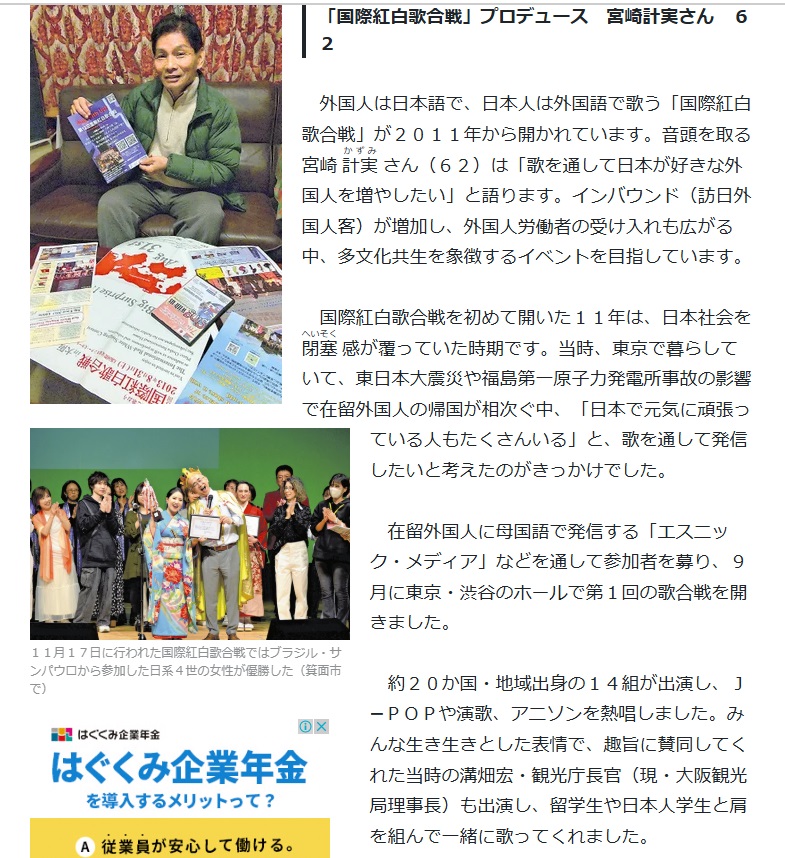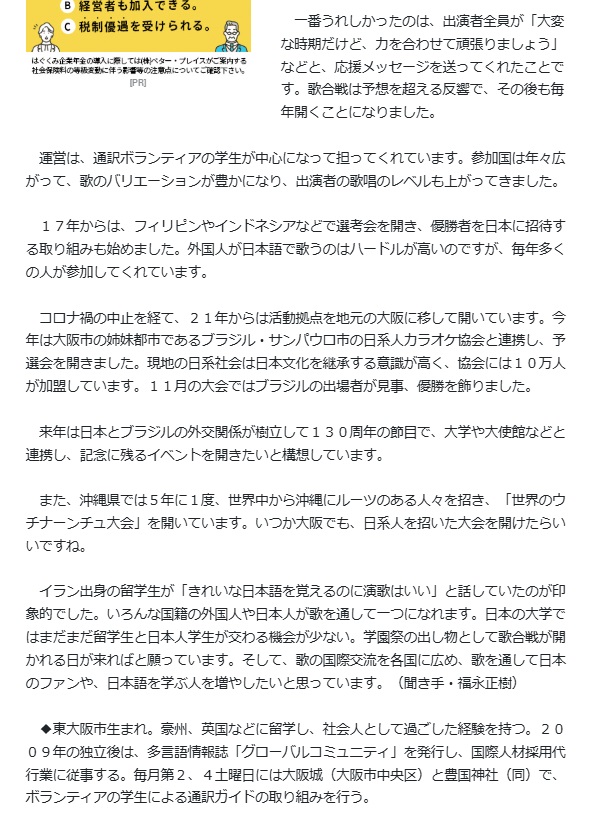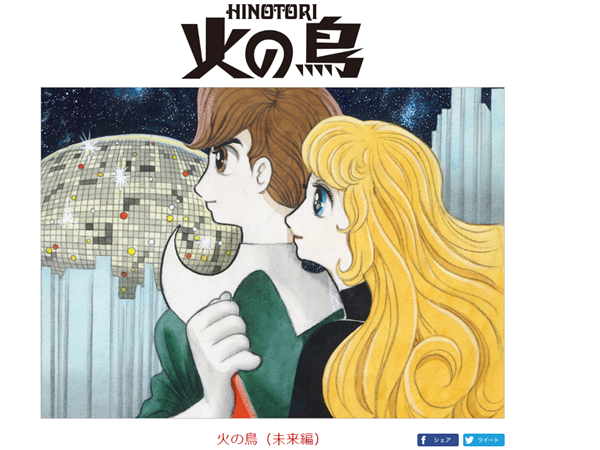Dois representantes do Brasil chegam ao Japão! Visita ao Pavilhão do Brasil
- 2025/09/27 22:32

Dois representantes do Brasil chegam ao Japão!
Visita ao Pavilhão do Brasil
― Em comemoração aos 130 anos do estabelecimento das relações diplomáticas Japão–Brasil ―
Após serem selecionadas na etapa classificatória realizada em São Paulo, as representantes Sras. Paula Hirama y Sra. Emi Fujino finalmente chegou ao Japão.
No dia seguinte à chegada, elas visitaram o Pavilhão do Brasil, localizado no recinto da Expo, onde foram calorosamente recebidas pelo diretor do pavilhão.
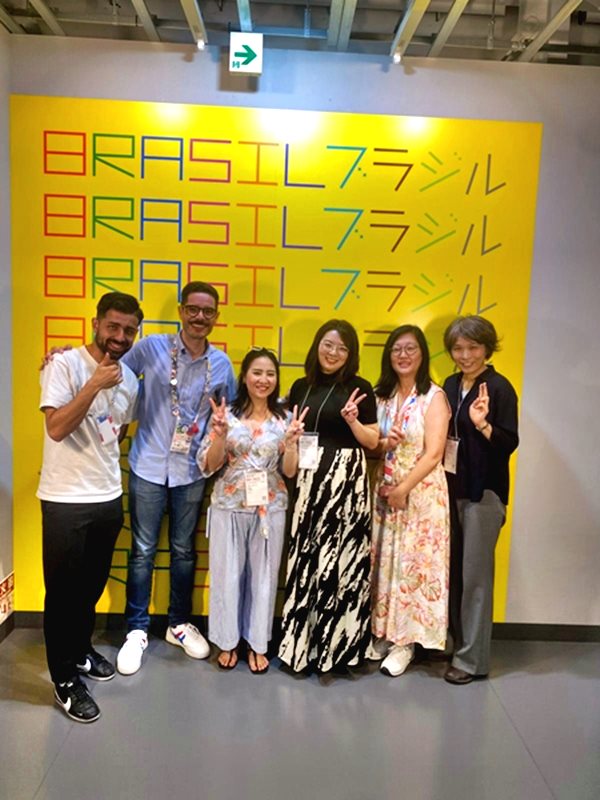
(Da esquerda: Sr. Lucas, secretário do diretor do pavilhão; Sr. Pablo Lira, diretor do Pavilhão do Brasil; no centro, as duas representantes vindas de São Paulo, Sra.) Paula Hirama y Sra. Emi Fujino, Sra. Neide Hayama, de Relações Públicas, e a voluntária Sra. Enomoto)
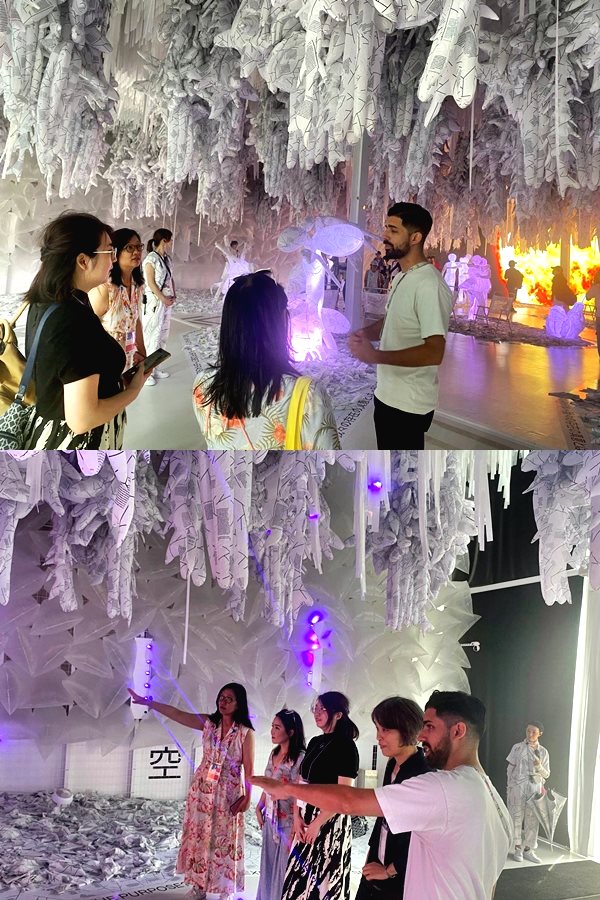
Durante a visita guiada, foram apresentadas às mais recentes exposições e a diferentes aspectos da cultura brasileira. Em especial, ficaram impressionadas com o compromisso sério do Brasil em relação às questões ambientais, percebendo como o país realmente exerce liderança mundial neste campo. As voluntárias japonesas que acompanhavam a visita também ouviram atentamente e se mostraram igualmente admiradas. As duas representantes, com um sorriso, afirmaram: “Queremos transmitir ao povo japonês todo o charme do Brasil.”
Encontro com o Diretor do Pavilhão
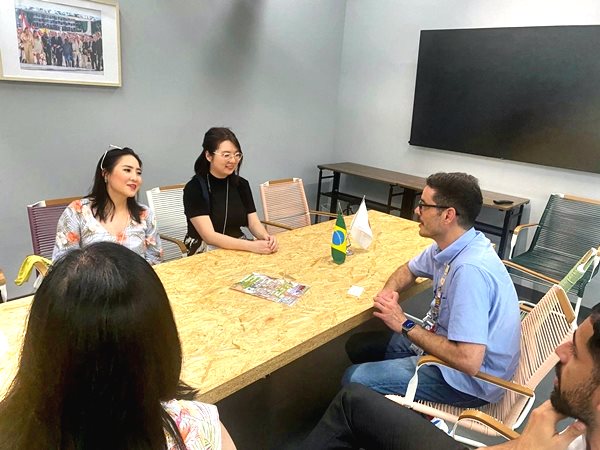
O diretor Lira, muito acessível e simpático, falou sobre a maneira positiva como os imigrantes japoneses contribuíram para o Brasil. Ele também expressou sua alegria em ver como a cultura japonesa — através da música, das artes cênicas e das artes marciais — se expandiu e se enraizou entre os brasileiros.
Este é um ano especial, que marca o 130º aniversário das relações diplomáticas entre Japão e Brasil. Esta visita foi um momento maravilhoso de intercâmbio cultural para celebrar a data e espera-se que, através das atividades futuras, os laços entre os dois países se tornem ainda mais fortes.
Visita à Maior Estrutura de Madeira do Mundo
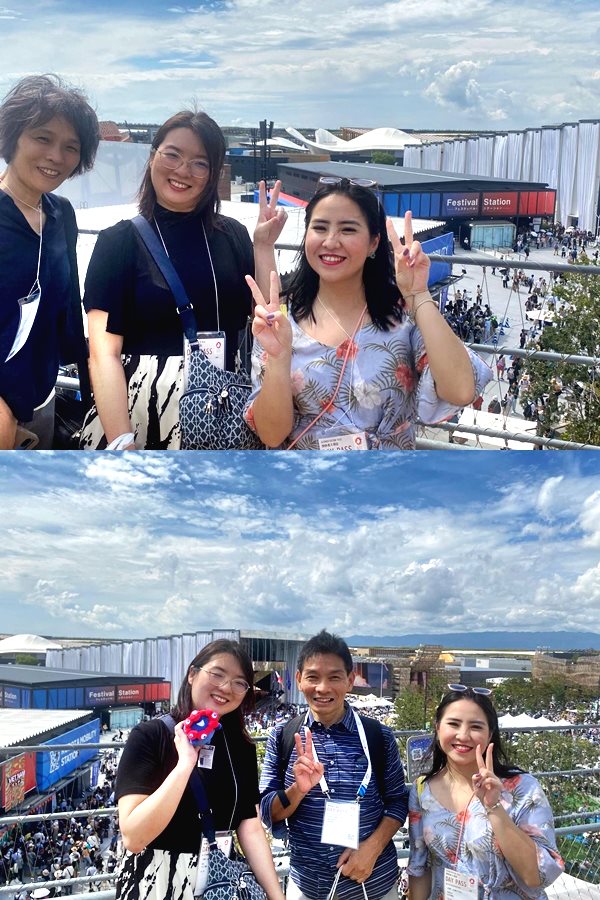
Depois, acompanhadas pela voluntária Sra. Enomoto e pelo coordenador de voluntários, Sr. Miyazaki, elas subiram até o “Grande Anel de Cobertura”, reconhecido pelo Guinness World Records como a maior estrutura de madeira do mundo. Ficaram surpresas ao saber que não foi utilizado um único prego em sua construção. Também se impressionaram ao ver pessoas do mundo todo visitando o local da Expo.
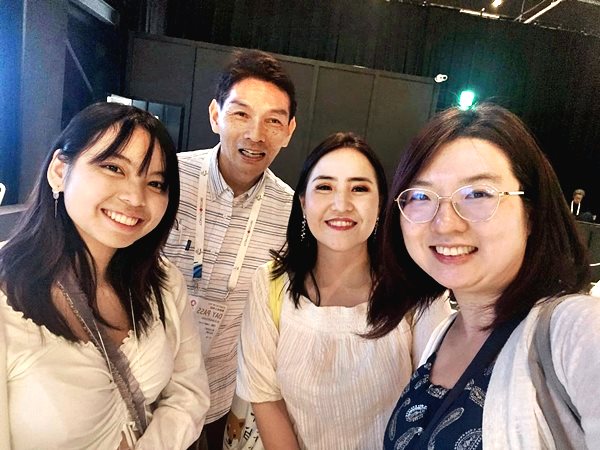
Visita Prévia ao Festival Station
A pedido das representantes, no mesmo dia foi realizada uma visita técnica ao “Festival Station”, local do evento do dia seguinte, acompanhada pela Sra. Rhea, voluntária da Irlanda que estuda em uma escola de música no Japão.
Durante as atividades de voluntariado de interpretação estudantil, Ria, que havia aprendido sobre os santuários xintoístas, comentou que a fé católica em Maria e a deusa xintoísta Amaterasu Ōmikami têm pontos em comum, como “tolerância e bondade”. Isso despertou o interesse das pessoas do mesmo país católico de origem dela.
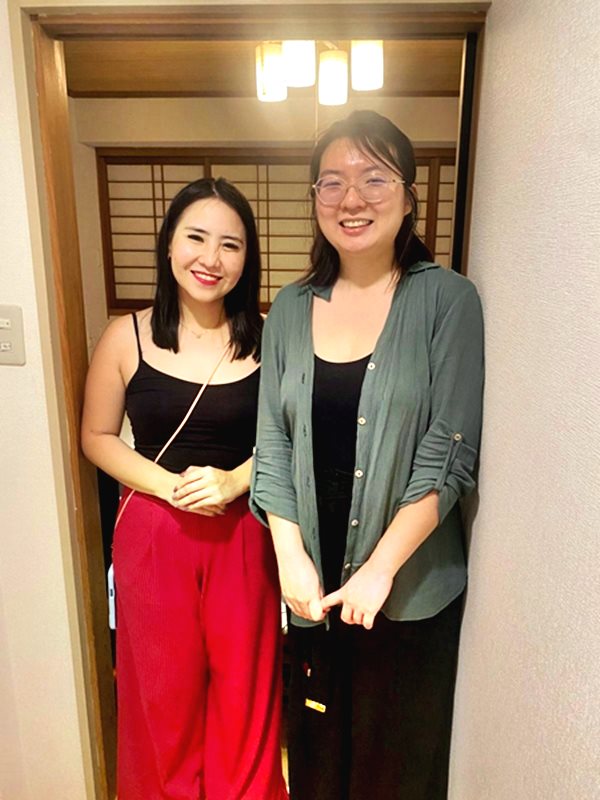
No “Pavilhão do Japão”, explicamos que os visitantes podem vivenciar como o lixo do local é decomposto por microrganismos e transformado novamente em água e materiais. Também apresentamos sistemas que produzem energia a partir de resíduos orgânicos, além do uso de tecnologias de algas e reciclagem de carbono para criar novos materiais. Personagens como Doraemon e Hello Kitty também aparecem, tornando o aprendizado divertido tanto para crianças quanto para adultos.
Sobre o Castelo de Osaka, mostramos fotos no celular e explicamos que foi construído por Toyotomi Hideyoshi — um guerreiro de origem camponesa que unificou o Japão pela primeira vez — usando métodos de construção sofisticados comparáveis aos daqueles empregados pelos senhores feudais mais poderosos. Contamos também que ele transformou o “hanami” (admiração das flores de cerejeira), antes exclusivo da nobreza, em um evento popular, e desenvolveu a infraestrutura logística que levou produtos de todo o Japão a Osaka, fazendo da cidade um centro comercial.
Por outro lado, elas contaram que em São Paulo existe o “Naniwa Kaikan”, um auditório construído pela comunidade de origem osakense, onde também são realizados festivais e eventos musicais. Enquanto conversávamos, até um grupo de senhoras de Osaka veio conversar conosco, de maneira calorosa.

Durante o intervalo e após o evento musical de 19 de setembro, as duas participantes vindas de São Paulo conversaram com os japoneses e voluntários nos bastidores e camarins sobre músicas, artistas e animes populares tanto no Japão quanto no Brasil, aproveitando o momento para um animado intercâmbio cultural.
